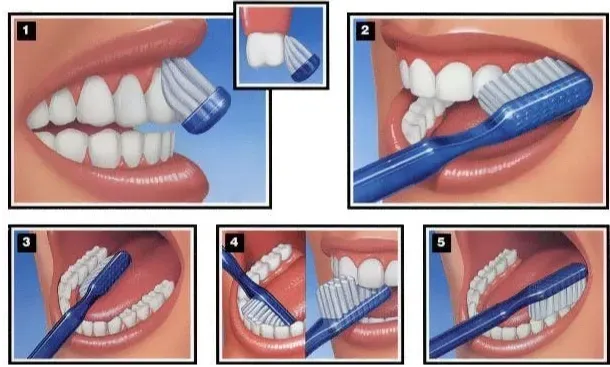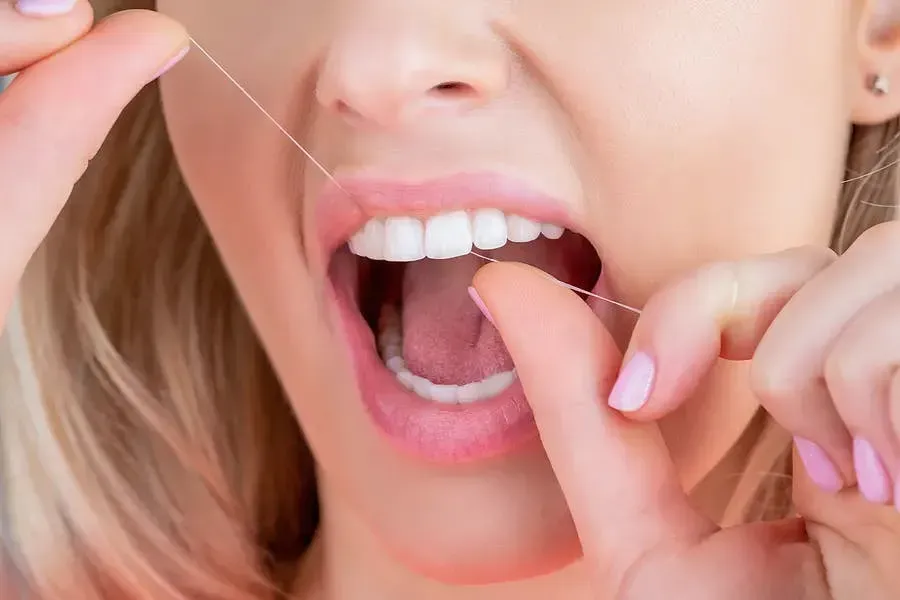How to Enhance Your Oral Health: Essential Tips for Strong Teeth and Gums
Understanding Oral Hygiene: The Importance of Routine Care
Connection Between Oral Health and Overall Wellness
The intricate connection between our oral health and overall wellness is pivotal. Consistent and effective oral hygiene not only fights against dental issues but also acts as a defense mechanism against broader health challenges. Studies, including those from the CDC, illustrate that gum disease can heighten the risk of chronic conditions like heart disease and diabetes. This fact makes routine dental care not merely a part of aesthetic upkeep but a critical component of holistic health management.
Beyond the physical health connections, maintaining optimal oral health is crucial for mental well-being. Persistent oral health issues can lead to significant psychological distress, affecting one’s quality of life and daily interactions.
The Link to Chronic Health Conditions
Periodontal disease, often seen as just a dental problem, can be a significant player in the development of serious health issues such as cardiovascular disease and diabetes. This relationship underscores the importance of regular oral care as part of a comprehensive health routine, not just for maintaining a healthy smile but also for ensuring overall bodily health.
Oral Health Impacts on Confidence and Self-Esteem
The psychological impacts of oral health are profound and often underestimated. Poor oral health can lead to decreased self-esteem and anxiety in social situations, which can affect personal and professional relationships. Addressing oral health proactively can help enhance one's confidence and improve overall quality of life.
Effective Brushing Techniques and Best Practices
Selecting the Right Toothbrush
Choosing the appropriate toothbrush is essential for effective oral care. The right toothbrush can significantly impact the efficacy of your daily routine. Dental experts typically recommend:
- Soft bristles: Gentle on gums and protective against enamel wear.
- Proper size: Should comfortably fit in your mouth and reach all areas easily.
The Cleveland Clinic advises using a soft-bristled brush angled at 45 degrees, a technique that helps in targeting the plaque that resides along the gumline.
Proper Brushing Technique
Effective brushing involves more than moving the toothbrush around your mouth. Key aspects of a proper brushing technique include:
- Position and motion: Hold the brush at a 45-degree angle to the gums and use short, gentle circles.
- Coverage: Ensure all surfaces of each tooth—the outer, inner, and biting surfaces—are thoroughly cleaned.
Duration and frequency:
- At least two minutes per session
- Twice a day, ideally in the morning and before bed
Flossing: A Crucial Step in Oral Care
How to Floss Properly
Flossing is an integral part of dental hygiene, crucial for reaching the tight spaces between teeth where a toothbrush can't reach. It helps to:
- Reduce plaque buildup
- Lower inflammation in the gums
- Stimulate the gums, maintaining healthy tissue
Choosing the Right Floss or Interdental Cleaner
It is essential to choose a floss that works best for your dental structure and comfort. Options include:
- Waxed and unwaxed floss: Waxed floss might slide between tight teeth more easily.
- Dental tape: Broader and flatter than standard floss, ideal for larger gaps.
Flossing Motion and Frequency
Proper flossing technique involves:
- Using about 18 inches of floss, winding most around one finger and the rest around the same finger of the opposite hand.
- Gently guiding the floss between the teeth by using a zig-zag motion, being careful not to snap the floss into the gums.
- Forming a 'C' shape around the side of each tooth and gently moving the floss up and down against the tooth and just below the gumline.
Flossing should be done daily to maintain optimal gum health and prevent tartar buildup.
Supplementing with Mouthwash and Tongue Scrapers
Selecting the Right Mouthwash
Choosing the correct type of mouthwash is crucial depending on your needs, which might include:
- Antibacterial properties: Helpful for reducing the overall bacterial load in your mouth.
- Fluoride enrichment: Beneficial for strengthening tooth enamel and fighting decay.
The Role of Tongue Scrapers
Tongue scrapers can significantly reduce the presence of bacteria and food debris on the tongue. Regular use helps:
- Minimize bacteria that can contribute to bad breath.
- Enhance the overall cleanliness of your mouth.
Dietary Habits for Strong Teeth and Gums
Foods to Emphasize
A diet conducive to oral health can substantially benefit your teeth and gums. It’s advisable to emphasize:
- High-fiber fruits and vegetables: Like apples, carrots, and celery which help clean teeth and gums.
- Dairy products and fluoridated water: These provide calcium and phosphates that strengthen teeth.
Foods to Avoid
To protect your oral health, consider minimizing:
- Sugary snacks and beverages: These can significantly increase the risk of cavities.
- Sticky and starchy foods: Foods like dried fruit and potato chips can cling to teeth and promote decay.
Avoiding Dry Mouth and Other Risk Factors
Managing Medication-Induced Dry Mouth
Many medications can cause dry mouth, which might reduce saliva flow and increase disease risk. It's critical to:
- Stay hydrated: Drink plenty of water to help maintain saliva production.
- Use saliva substitutes: Available as sprays or lozenges, these can help keep your mouth moist.
Limiting Alcohol and Tobacco Usage
Reducing alcohol and tobacco use can significantly benefit your oral health, as both can contribute to conditions like gum disease and oral cancers.
Preventative Dental Care and Professional Cleanings
Scheduling Regular Dental Visits
Dentists not only handle routine cleanings and examinations but also are your first line of defense against serious dental issues. Regular check-ups can help in:
- Early detection of problems: Spotting signs of decay or gum disease early can lead to easier and more effective treatments.
Personalized Cleaning Frequency and Care
Based on your individual health profile, a dentist might recommend a customized cleaning schedule, which could be more frequent than twice a year, particularly if you are at higher risk for dental diseases.
Tailoring Your Routine: Special Oral Hygiene Considerations
Pregnancy and Diabetes
Both pregnancy and diabetes can alter your oral health care needs, making modifications necessary to handle the unique challenges these conditions present.
Smoking and Other Lifestyle Factors
Factors like smoking can severely impact oral health, contributing to diseases and complicating conditions like gum disease. Addressing these lifestyle factors can lead to improved oral health and overall wellness.
Conclusion: The Path to Lifelong Oral Health
Achieving and maintaining excellent oral health requires a commitment to a comprehensive care routine that includes proper brushing and flossing, regular dental visits, and lifestyle adjustments. By prioritizing your oral health, you are investing in your overall well-being for years to come.







